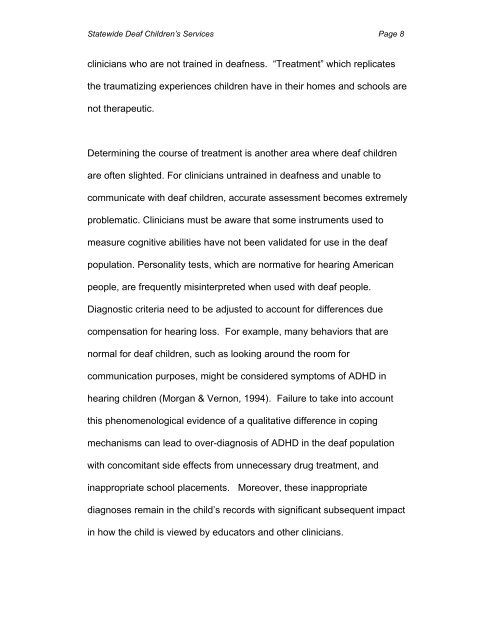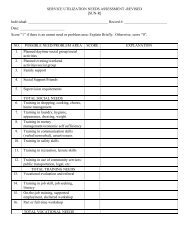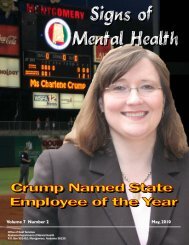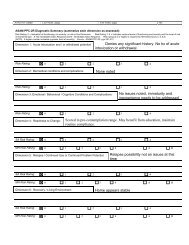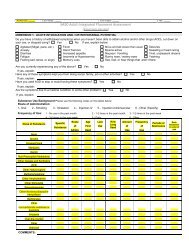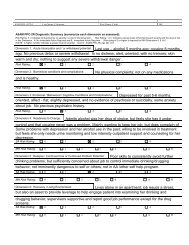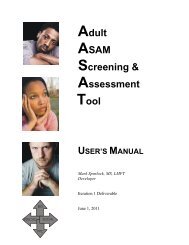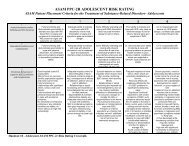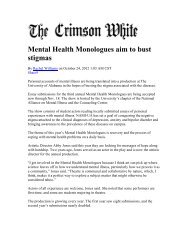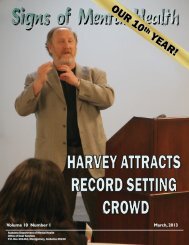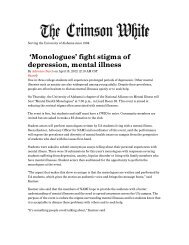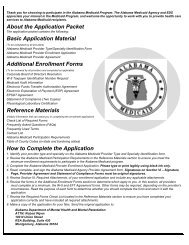Serving Severely Emotionally Disturbed Deaf Youth - Alabama ...
Serving Severely Emotionally Disturbed Deaf Youth - Alabama ...
Serving Severely Emotionally Disturbed Deaf Youth - Alabama ...
Create successful ePaper yourself
Turn your PDF publications into a flip-book with our unique Google optimized e-Paper software.
Statewide <strong>Deaf</strong> Children’s Services Page 8clinicians who are not trained in deafness. “Treatment” which replicatesthe traumatizing experiences children have in their homes and schools arenot therapeutic.Determining the course of treatment is another area where deaf childrenare often slighted. For clinicians untrained in deafness and unable tocommunicate with deaf children, accurate assessment becomes extremelyproblematic. Clinicians must be aware that some instruments used tomeasure cognitive abilities have not been validated for use in the deafpopulation. Personality tests, which are normative for hearing Americanpeople, are frequently misinterpreted when used with deaf people.Diagnostic criteria need to be adjusted to account for differences duecompensation for hearing loss. For example, many behaviors that arenormal for deaf children, such as looking around the room forcommunication purposes, might be considered symptoms of ADHD inhearing children (Morgan & Vernon, 1994). Failure to take into accountthis phenomenological evidence of a qualitative difference in copingmechanisms can lead to over-diagnosis of ADHD in the deaf populationwith concomitant side effects from unnecessary drug treatment, andinappropriate school placements. Moreover, these inappropriatediagnoses remain in the child’s records with significant subsequent impactin how the child is viewed by educators and other clinicians.


